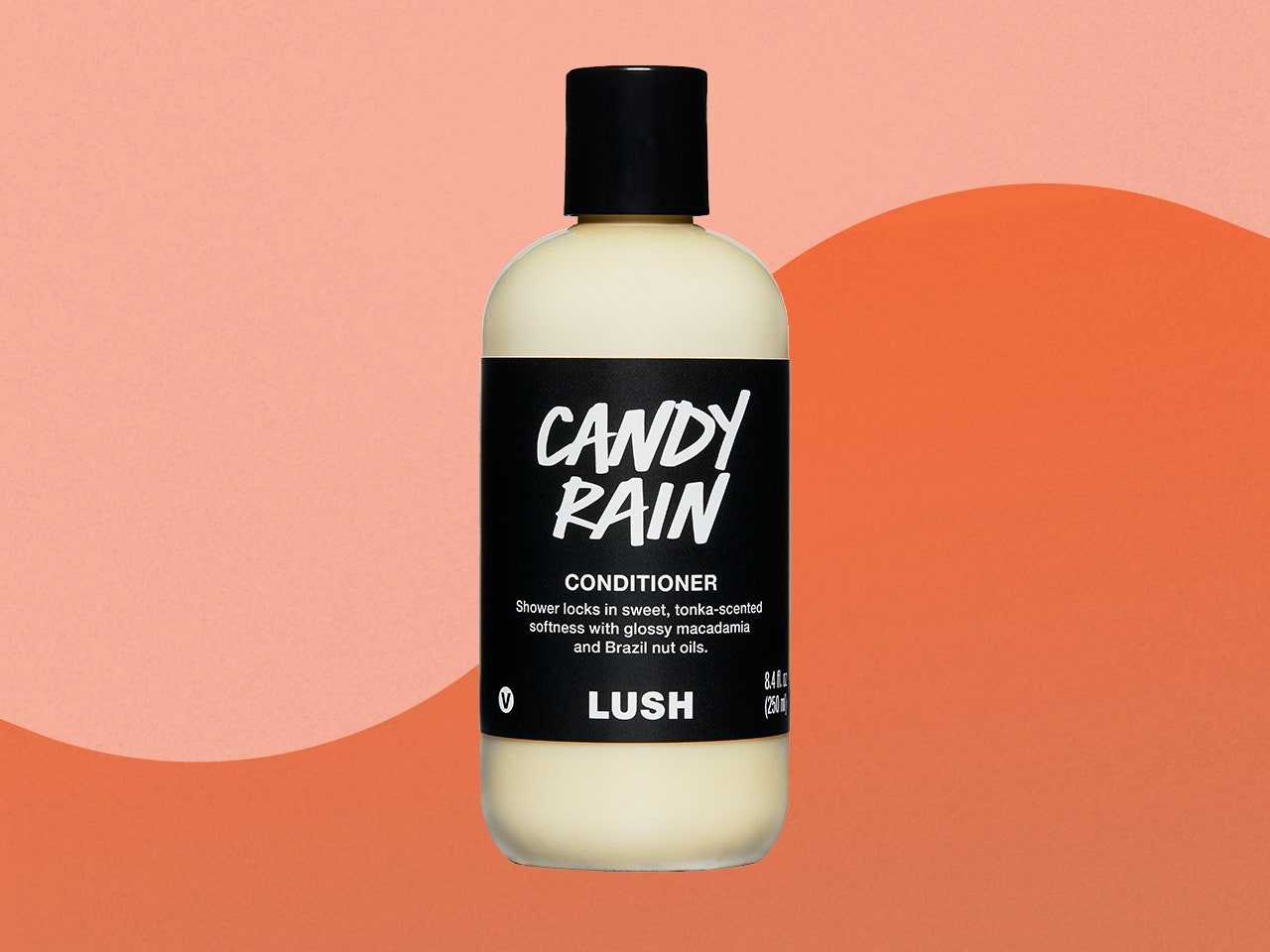Water is an essential ingredient in cosmetics and hair products . But the new Candy Rain conditioner from environmentally conscious brand Lush takes the idea a step further and uses rain water. Yes, real, literal, actual rainwater, as in, it fell from the friggin sky .

This is the first time Lush has used rainwater in a product, but the process is pretty straightforward: “The rainwater is collected from the roofs of our Canadian manufacturing facilities in Vancouver and Toronto,” a Lush spokesperson tells SELF via email. “It is collected in drain pipes, filtered through a cheesecloth, and gathered in a large vat before being distilled.” From there, it’s stored in a refrigerator until it gets used.
Lush’s rainwater-collection system is running continually, so when it’s raining, they’re collecting. That means that the actual amount of rainwater Lush has available to use changes based on the natural conditions, of course. But, the spokesperson says, the system can hold up 40 gallons and has at least 27 gallons on hand at any given time.
The exact amount of rainwater in a bottle of Candy Rain conditioner depends on the size of the bottle (it’s available in 3.3 oz., 8.4 oz., 16.9 oz., and 33.8 oz. containers). But in all sizes, there’s an ounce or less of rainwater in the bottle, the spokesperson says.
Of course, the question is: Is there any difference between rainwater in your hair products and regular old plain water? A spokesperson for Lush tells me that they decided to use rainwater in their new conditioner “to keep the hair sleek and smooth, because it doesn’t contain volumizing minerals that cause locks to lift.” What they’re talking about here is the idea that using water that contains things like calcium carbonate and magnesium sulfate (“hard water”) can lead to a buildup of those minerals, causing hair to become frizzy, dry, and brittle and to eventually break. But the science on how this happens, if at all, is a little fuzzy . And, of course, the water you’re showering in probably matters a lot more in this context than the water in your hair products. So do you need rainwater in your hair products? Most likely no. But it’s a cool concept, and I wanted to try it out.
Lush generously sent me a bottle to give it a try. I used it in place of my regular conditioner three times over about a two-week period. So, how did it go?
The first thing that struck me about the conditioner was the smell: It’s a sweet, woody combination that immediately filled my shower. I noticed the scent in my hair after showering, the next morning, and two days later, which is truly impressive. It ended up spreading out into my entire (small studio) apartment. So depending on whether or not you enjoy that scent, this could be a good or bad thing. Personally, it’s a little sweeter than I normally like, but I was pleasantly surprised at how much I didn’t hate it!
Candy Rain’s texture ended up being perfect for my thick, wavy hair . It’s creamy and felt really moisturizing, likely due to all the nut oils and extracts in the conditioner—seriously, we’ve got cashew cream, macadamia nut milk, Brazil nut milk, and coconut (yes, technically a fruit ) oil all represented. These kinds of moisturizing and gloss-enhancing ingredients are always essential for keeping my hair from getting too frizzy , but especially so in this dry winter weather.
And the results were exactly what I expected from a creamy conditioner like this—soft, shiny hair with delicious-smelling waves for days. As I’ve mentioned before , I’m pretty loyal to my tea tree oil–containing shampoos and conditioners to soothe my scalp, but I loved the way this made my hair feel and smell. So I’ll definitely be swapping it into the regular rotation.
All products featured on SELF are independently selected by our editors. If you buy something through our retail links, we may earn an affiliate commission.
Buy it : $10, lushusa.com
Related:
